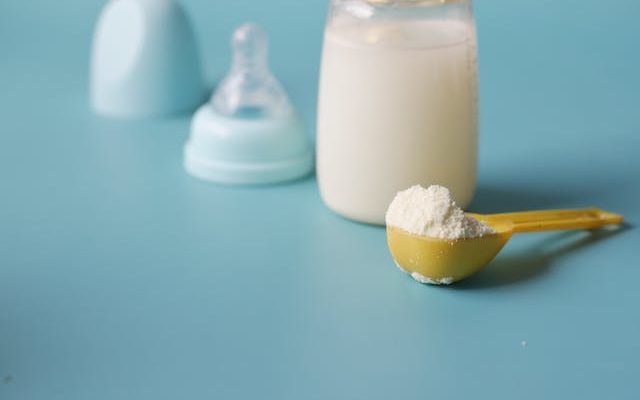Deciding how to feed your newborn baby is one of the most important choices every parent has to make early on.
Breastfeeding offers unmatched benefits if possible. But for various reasons, many parents opt to use infant formula either as a supplement or complete replacement. In the United States, over 85% of babies receive some formula in their first six months.
When it comes to formula, milk-based types are the most popular, trusted option recommended by most pediatricians. Formulated from cow’s milk that has been altered and fortified, milk-based formulas can fully nourish babies and allow for healthy growth when breastfeeding is not an option.
However, not all milk-based formulas are equal, and there are some key considerations for parents when choosing and using one. This guide will explore five essential things you should know when it comes to milk-based baby formulas.
#1. Safety
As with any product, ensuring your baby’s safety while using formula is paramount. According to TorHoerman Law, recent lawsuits and FDA investigations into contaminated infant formula have raised some questions about the safety of milk-based powdered formulas.
In early 2022, Abbott Nutrition recalled several of its Similac products after reports of bacterial infections from ‘Cronobacter sakazakii’. Though no direct link was proven, this highlighted concerns about safety protocols and standards in manufacturing.
The recall affected millions of cans of Similac, Alimentum, and EleCare made at one Michigan facility. Four infant deaths from Cronobacter infection were potentially connected to consuming these formulas. This led to a shutdown of the plant and product shortages.
Besides this incident, Abbott Nutrition is also facing severe scrutiny due to the Similac lawsuit. The lawsuit claims that Similac’s milk-based baby formulas caused NEC (necrotizing enterocolitis), a life-threatening condition that damages the intestines in premature babies. Mead Johnson and its brand Emfamil also face a similar lawsuit. Over 340 cases are awaiting justice in the NEC preterm infant formula MDL.
If you’re unsure about what to choose, breast milk is the safest option. Supplementing it with a formula is the second-best way to go. If you require any further assistance, talk to your pediatrician.
When used properly, parents can feel confident in the safety of milk-based formulas that provide complete, nutritious nourishment for developing babies.
#2. Ingredients
Cow’s milk-based formulas contain cow’s milk proteins like casein and whey that have been altered to be easier for babies to digest.
They also contain added vitamins, minerals, vegetable oils, and other ingredients to make the nutrition complete. For example, iron is added to help prevent anemia, and vitamin D for bone health.
Understanding the ingredients in the formula can help you avoid types that may cause allergic reactions if your baby is sensitive to certain proteins or additives. Always consult your pediatrician if you have any concerns.
#3. Nutritional Benefits
Milk-based formulas provide well-balanced nutrition with proteins, fat, and carbs in ratios appropriate for infants. All baby formulas available in the US follow the Food and Drug Administration’s guidelines for nutritional guidelines.
The proteins have been modified into forms that are easier for babies to digest and absorb than straight cow’s milk. Added iron helps prevent iron deficiency (anemia), which is a risk in early infancy. Extra vitamin D promotes calcium absorption for developing bones. Iodine is included for proper thyroid function. Vegetable oils provide essential fatty acids for brain and vision development.
While lacking some immune factors found in breast milk, milk-based formulas do provide complete nutrition, allowing babies to grow and thrive. Some babies may be intolerant to the proteins in cow’s milk though and need a hypoallergenic formula instead.
#4. Preparation Tips
To safely prepare the formula, always carefully follow the instructions on the packaging. Using the provided scoop, accurately measure out the powder and mix it with the indicated amount of water.
Heat water to at least 158 °F (70 °C) and then let cool before mixing to reduce bacterial risk. Improperly mixed formula can cause illness.
Sanitize bottles and equipment thoroughly first. Refrigerate the prepared formula immediately and use it within 48 hours. Never freeze or re-warm already made formula.
Following proper procedures when making and handling formula can help keep your baby healthy and safe.
#5. Storage and Handling
Freshly prepared formula should be refrigerated and used within 48 hours, as bacteria multiply at room temperature. Any formula left in the bottle after a feeding should be discarded.
The powdered formula must be stored in a sealed container in a cool, dry area. Humidity can cause clumping. Once opened, cans of liquid concentrate or ready-to-feed formula should be used by the expiration date on the can.
Proper refrigeration and avoiding contamination keep the formula safe to drink. Discard any formula that smells bad or looks discolored.
In conclusion, while recent recalls and lawsuits may raise concerns about the safety of milk-based baby formula, it’s essential to approach the topic with clarity and caution.
Feeding your newborn baby is an enormous responsibility. When considering infant formula, arm yourself with all the key facts before deciding what’s best for your child. Milk-based formulas can provide complete, nutritious nourishment when prepared and handled properly. But be aware of any safety concerns and talk to your pediatrician if you have questions.
With the right information and care, you can ensure your baby gets the healthiest start to life, whether breastfed or formula-fed. Trust yourself to make the choices that feel right for your family.














Comments